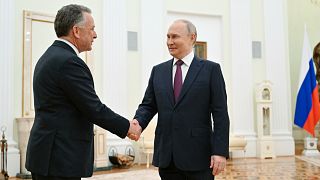Poverty
The coronavirus pandemic and its economic consequences could push as many as 60 million people into extreme poverty.
The World Bank warns that the progress made over the past three years in the fight against poverty could be wiped out. Living on less than $1.90 per person per day is how the financial institution defines extreme poverty.
Nevertheless, its President, David Malpass, welcomes the efforts made so far: $5.5 billion in emergency aid to 100 developing countries.
He says rapid responses are needed to address the health emergency, but also to provide financial support and other scalable resources to protect the poor, preserve private sector activity and strengthen economic recovery and resilience.
The World Bank is also predicting a 5% global recession this year. The 15-month commitment is to give poor countries $160 billion in grants or low-interest loans to help them in health, economic and social development.
The one-year debt suspension decided by the G20 has already benefited 14 countries and 23 others have requested it. But international creditors remain reluctant.
In any case, the World Bank establishes a direct link between advanced economies and developing countries, which are highly dependent on trade and tourism driven by rich countries. This is even more of a determining factor than the generosity of donors.










01:02
WHO member countries draft landmark preparedness treaty for next pandemic
Go to video
Mauritius: Ex-finance minister released on bail after corruption charges
Go to video
Libya devalues currency for first time in four years amid fiscal strain
01:59
Tunisians observing Ramadan turn to snails as meat prices soar
Go to video
World Bank: effective policy measures could halve air pollution by 2040
04:04
DR Congo's Goma faces economic and financial crisis following M23 takeover